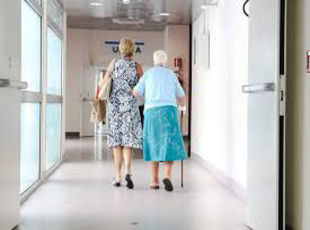We understand that becoming sickly is quite expected as you age because your body degenerates over time. It is a fact of life. However, it does not mean that your quality of life deteriorates as well simply because you are aging. We are all expected to age, yet some manage to age gracefully and live a quality life in the twilight of their lives compared to others. Yet the majority of the elderly struggle in doing even the most basic of tasks and it has given everyone the notion that getting old is a major bummer.
 Well, it is true in most cases since you move slower as you age as your physical body becomes more fragile than ever. It is the reason why the elderly are included in the vulnerable groups together with young children and pregnant women. It does not also come as a surprise that most elderly people take a lot of maintenance medications for a variety of health conditions they are diagnosed with. Most of us think that it is better for older people to take many meds to ensure they live longer and beat whatever diseases they have but it seems we are actually mistaken. Medicine is not always the cure nor is aggressive medical treatment.
Well, it is true in most cases since you move slower as you age as your physical body becomes more fragile than ever. It is the reason why the elderly are included in the vulnerable groups together with young children and pregnant women. It does not also come as a surprise that most elderly people take a lot of maintenance medications for a variety of health conditions they are diagnosed with. Most of us think that it is better for older people to take many meds to ensure they live longer and beat whatever diseases they have but it seems we are actually mistaken. Medicine is not always the cure nor is aggressive medical treatment.
Geriatricians like Taler come in, talk to the patient, examine their pills and make recommendations that ideally are aimed at the whole patient, not just his or her heart or lungs or pancreas. With a frail elderly patient who may not have many years to live, some of the established drugs and procedures don’t make sense anymore.
Are a diabetic patient’s other doctors pushing too hard to lower his blood sugar, raising the risk of a faint, which could result in a broken hip? Is an orthopedist recommending arthroscopic surgery—a procedure, research shows, that doesn’t cure arthritis? All those expensive Mohs procedures to remove precancerous growths—given how slow-growing they are, is it always worth the time, expense and strain on the patient to remove them so carefully?
“A lot of what we do is try to prevent harm by other providers,” said Sei Lee, associate medical director at the University of California Center for Geriatric Care in San Francisco. “The cultural norm in geriatrics is that we are trying to do more with less. We try to protect our patients from some of the iatrogenic harms. We were the choir when Choosing Wisely came out.”
(Via: http://www.politico.com/agenda/story/2017/09/27/choosing-wisely-medical-care-costs-000527)
Doctors are changing their management approach when it comes to treating elderly patients. If you look closely at the long list of drugs and treatments that many elderly patients receive over the years, a lot of them are deemed unnecessary and may even be detrimental to the senior’s life (and health) one way or the other. Sometimes many medical providers push for aggressive treatment that the frail body of an elderly person can no longer take, making them more prone to certain accidents or infections rather than making them well again.
“Aging itself is not inevitably associated with a decline in mood and quality of life,” says Karl-Heinz Ladwig, summarizing the results in a release. “It is rather the case that psychosocial factors such as depression or anxiety impair subjective well-being.” Helmholtz Zentrum München, head of the Mental Health Research Group at the Institute of Epidemiology II, and professor of Psychosomatic Medicine at the TUM University Hospital adds, “And in the case of women, living alone also plays an important role.”
For the current study, Ladwig and his team relied on data derived from about 3,600 participants with an average age of 73 who had taken part in the population-based KORA-Age Study. “What made the study particularly interesting was the fact that the impact of stress on emotional well-being has barely been investigated in a broader, non-clinical context,” says Karoline Lukaschek, epidemiologist in the Mental Health Research Group and lead author of the paper. “Our study therefore explicitly included anxiety, depression and sleep disorders.”
We can’t stop the hands of time. Your body goes through various changes as you live your life and the stress of all the past years takes its toll on your body. It is not just the wrinkles that line your face that causes you to feel down but the lack of sleep as well that often accompanies aging aside from all the other bothersome and painful symptoms of the conditions most seniors are diagnosed with. But with prompt and proper holistic treatment, the elderly people can still live independently and not always succumb to sickness.
Doctors should not just prescribe the first drug that comes to mind and think of the elderly patient in a context that is not limited to their condition but as a living and breathing human being that needs a balance of tender love and care along with the appropriate medical intervention.
